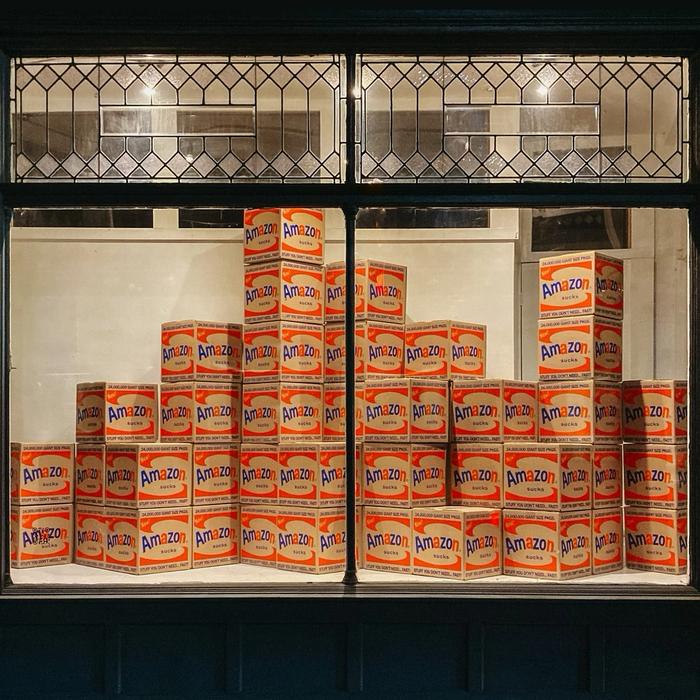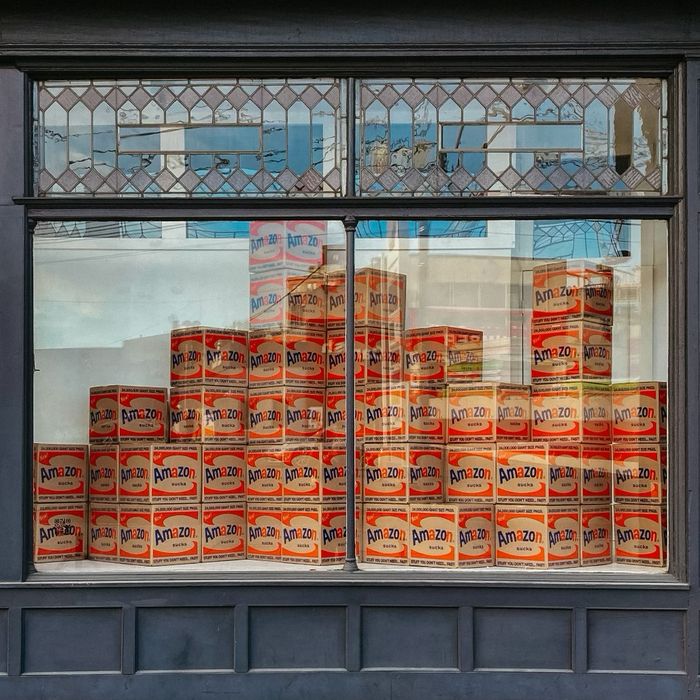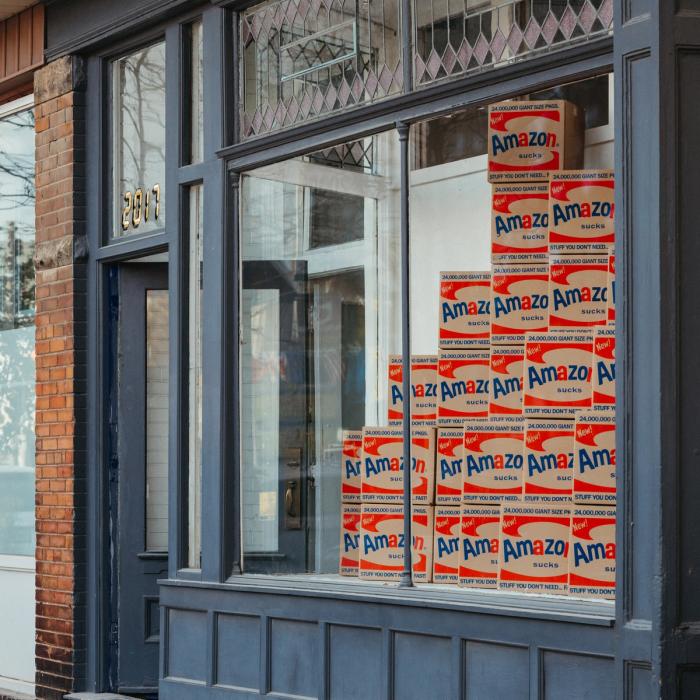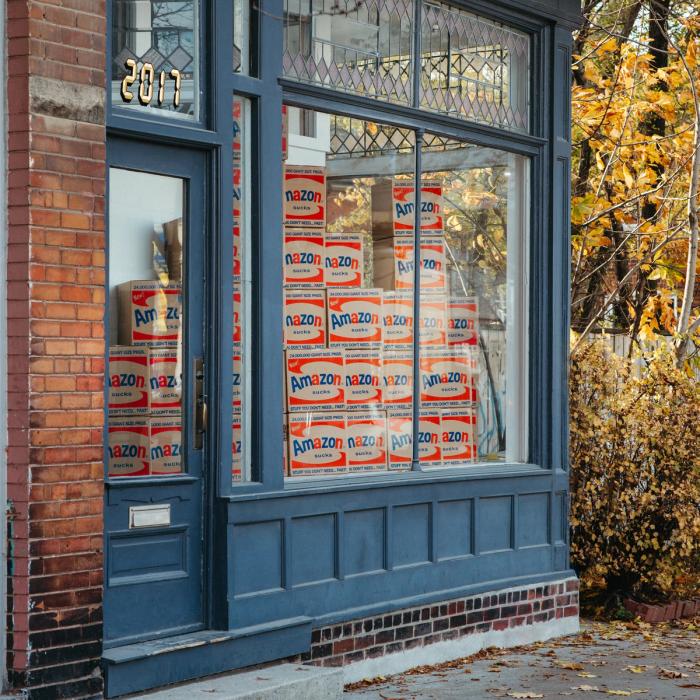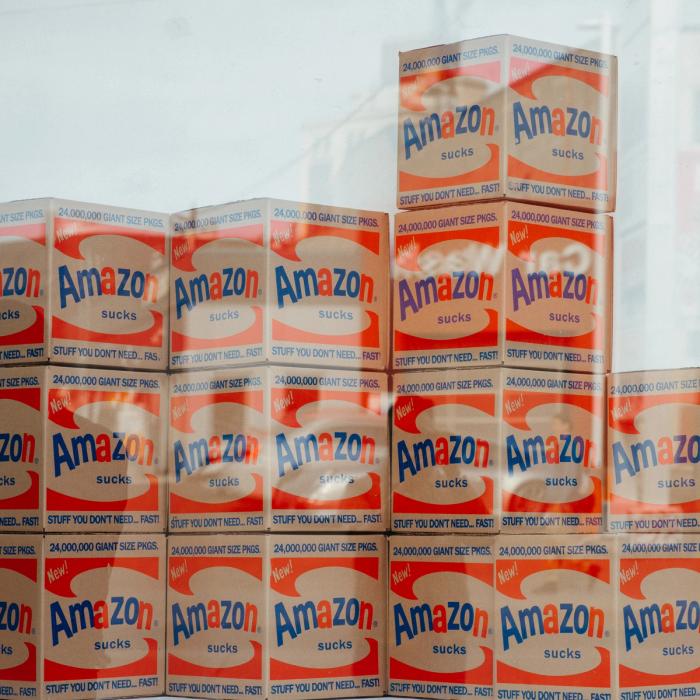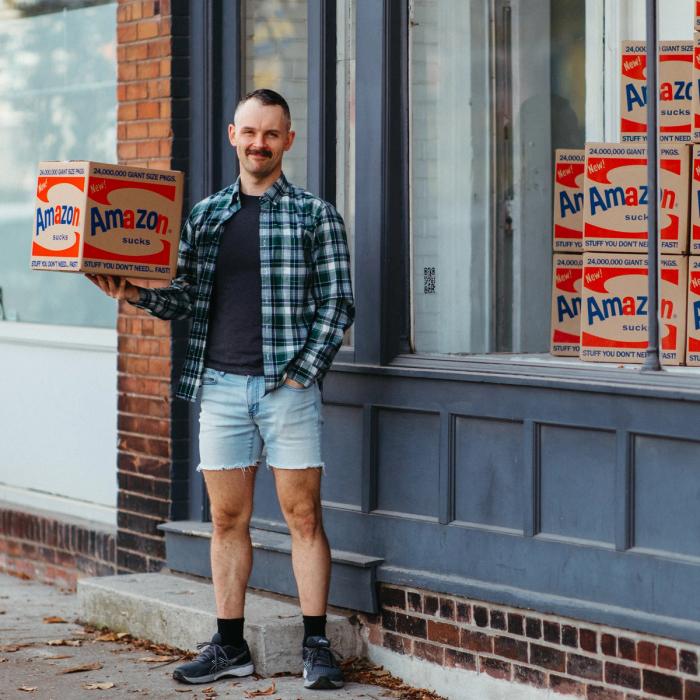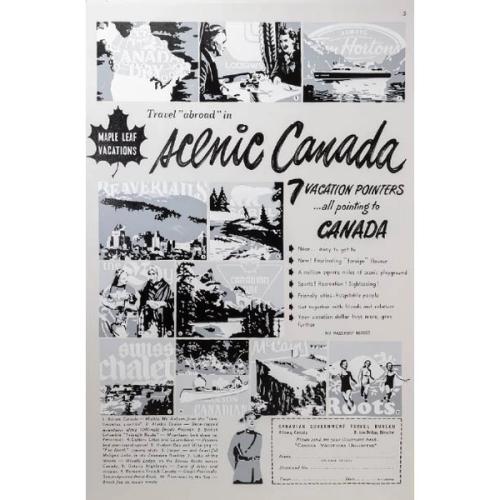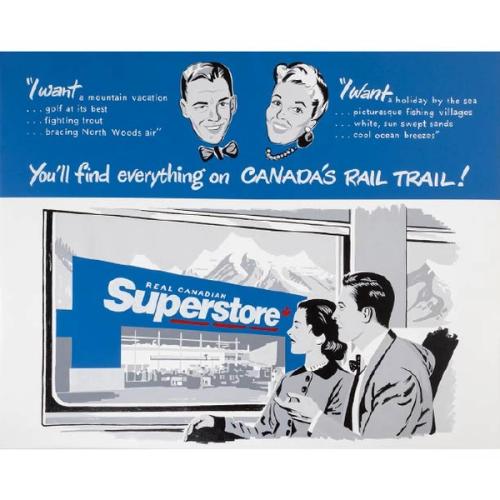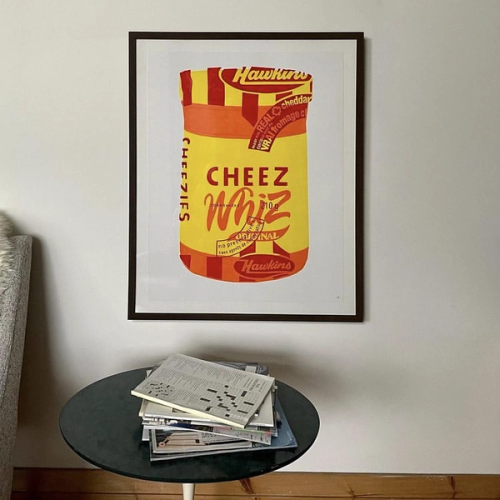Amazon Sucks
2017 Dundas Street West, Toronto, ON
With the freedom of online shopping, you can now have exactly what you want, delivered to your doorstep, sometimes even in the same day. But discounted prices and unprecedented convenience come at a great cost, and we must no longer turn a blind eye to these hidden consequences. Multinational mega-corporations threaten to crush small businesses because of the power we have given to them through our seemingly innocuous purchasing.
Take Amazon as an example. It is notorious for its deplorable working conditions and unfair wages for its warehouse employees, ongoing lawsuits, tax evasion, and the cumulative effect that their shipping model has on our environment is catastrophic. Yet, it has soared into a new level of market dominance since the onset of the global pandemic. Amazon now has a market cap over $1.1 trillion. Its CEO Jeff Bezos, is the second wealthiest human on the planet, with a net worth over $136 billion. This level of wealth hoarding is dangerous and unsustainable.
Corporations like Amazon rely on your complacency. Amazon’s revenues are nearly incomprehensible, and it and its peers can use their scale to intimidate and stifle competition. It may feel hopeless, but your purchasing choices have power. Like a single voice in a protest, or an individual ballot in an election, your actions contribute to direct, cumulative change.
Moving into this holiday season - the bread and butter for so many small businesses - you have choice. Not just in what products and services you buy, but which businesses you support. Please make a commitment to support & promote local business as often as possible, even if it costs a few more cents than Amazon.
-
More about The New Pop by Christopher Rouleau
Packaged consumer goods are an ideal subject to explore socio-economic systems. "These carefully manufactured and immaculately finished cartons allude to the powerful (yet invisible) force behind the production and marketing of the products themselves ... they are symbols of the complicated network of demand and supply essential to the formation of a consumerist culture" (MoMA). Product branding – the sophisticated visual language that manipulates our relationship with products – is essentially just strategic placement of colour and text.
Despite consumer's best efforts to "support local", many of Canada’s favourite companies are in fact owned by US mega-corporations. Even wholly-owned Canadian brands only offer the illusion of choice (including Real Canadian Superstore, No Frills, Valu-mart and Shoppers Drug Mart – all subsidiaries of the Loblaw Companies conglomerate). Brands under the same corporate umbrella sell us the same items at drastically different prices. Corporations benefit from consumer complacency, and furthermore, profit from this type of misaligned brand loyalty and product nationalism.
With a direct nod to the Warholian pop art movement, Christopher uses juxtaposition, wordplay, and exaggerated scale to subverts familiar legacy packaging. The New Pop urges us to think more critically about branding, the Canadian identity, and our everyday consumption.
-
Special thanks:
Screen printing supplies: Secret Planet Print Shop / Jackie Lee
Exhibition space: Gallery Window / Craig Small
Installation: Adam Leger, Rob Shostak, Kyle Vynckier
Photography: John Alunan
